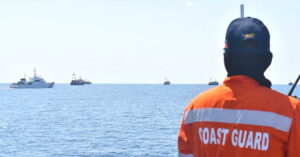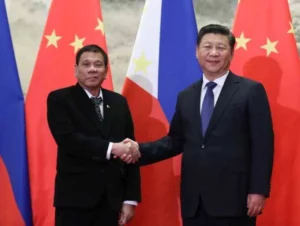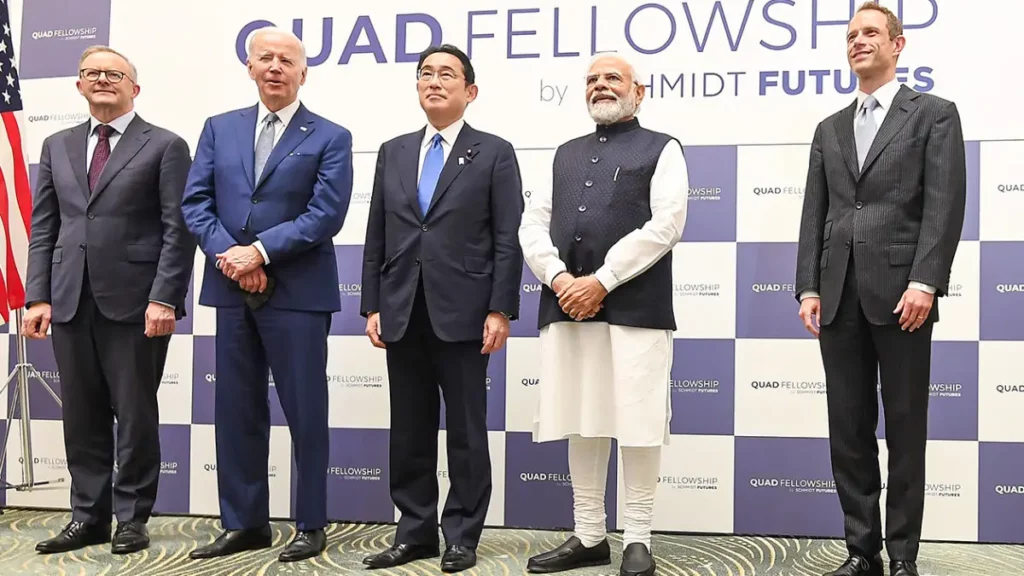
To the Global Governance Institution, the main organizer of this forum, with the theme “Security Implications of the Indo-Pacific Maritime Domain Awareness (IPMDA) under Big Power Competition, I would like to express my sincere thanks for inviting me as one of the speakers.
Distinguished Speakers, Military Attaches, participants, friends, and colleagues, a pleasant day to all.
In an attempt to counter China and realize the aspiration of the United States Pivot to Asia Strategy, the US has rejuvenated the QUAD.
The QUAD is part and parcel of the shift in US foreign policy from being Middle East centered to Asia Pacific focused, from “War on Terror” to “Great Power Rivalry against China.” All of these are embodied in the “American Pivot to Asia” or what is known as the “US Strategic Rebalance to Asia,” under the Obama administration that was renamed the Indo-Pacific Strategy (IPS) under the Trump administration, which the Biden administration is now pursuing.
The rebalance to Asia strategy is the US’ response to the ever-changing and very dynamic geopolitical context and environment of the Asia Pacific region, which have been driven by significant developments such as the rise of Asian economies with China as the frontrunner and the inevitable rise of China as a regional power in Asia and even beyond.
The overarching narrative of the US rebalance to Asia strategy is indeed driven by the compulsion of realpolitik in contemporary times, with China being identified as the number one threat or challenge to the US’ hegemonic standing in Asia and the world.
In many ways, the strategy is not only fastened to the idea and the belief that the center of gravity for US foreign policy, national security, and economic interests is shifting towards Asia from the Middle East but it is prefixed on the recognition that the Asia-Pacific would play an increasingly important role in driving the world’s political and economic life in the 21st century. The US would like to take advantage of these opportunities to boost economic growth at home to reassert its influence and leadership in the region while trying to preserve its global hegemony.
Hence, since the launch of its strategic rebalance to Asia strategy, the US has been looking for ways and means to boost its military-security presence in the Asia Pacific. Indeed, this has prompted a mix of reactions among countries in ASEAN and Asia in general, with speculations that the military-security component is the primary goal of the US rebalance to Asia’s foreign policy.
Just to note, the US rebalance to Asia strategy has three components – economic, diplomatic, and military security.
Military-security-wise, the US has also been increasing its efforts to establish new and reinvigorate security alliances and cooperation with its existing regional partners like the Philippines, Vietnam, Thailand, Malaysia, Indonesia, India, Japan, South Korea, Singapore, and others.
Likewise, the conduct of Freedom of Navigation Operations (FONOPs) of US, UK, and QUAD members’ warships in the Indo-Pacific region is part and parcel of the US grand Indo-Pacific Strategy.
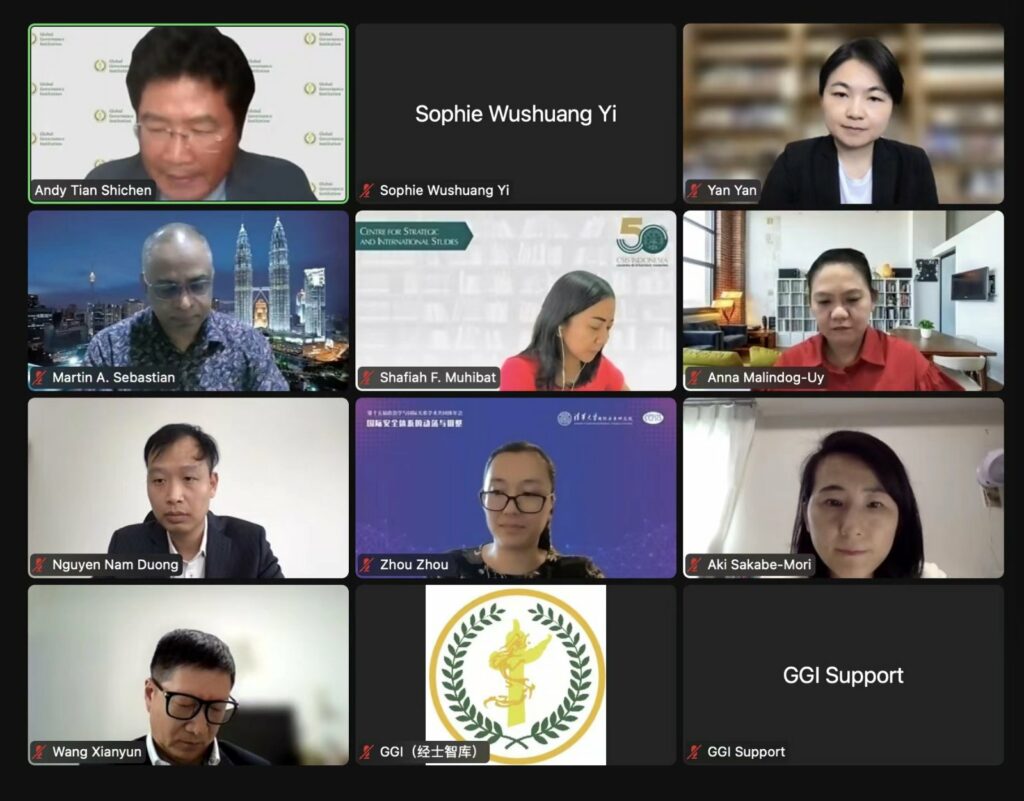
QUAD
Speaking of QUAD, or the Quadrilateral Security Dialogue, an informal strategic dialogue maintained by talks between member countries like the US, Japan, Australia, and India, it is nothing more than a narrower, security-centric effort of the US to counter China.
Just last May 24 of this year (2022), the QUAD launched a new maritime domain awareness initiative coined as the Indo-Pacific Partnership for Maritime Domain Awareness or IPMDA, designed accordingly to work with regional partners to respond to humanitarian and natural disasters and combat illegal, unregulated, and unreported fishing activities in the region.
From the vantage point of the QUAD, the IPMDA is projected as a vehicle or mechanism to transform “the ability of partners in the Pacific Islands, Southeast Asia, and the Indian Ocean region to monitor the waters on their shores fully and, in turn, to uphold a free and open Indo-Pacific region.
Nevertheless, all countries in the Asia Pacific or Indo-Pacific Region are somewhat invited except China. Although none of the leaders of the four-member countries of QUAD mentioned China during the unveiling of the IPMDA, it is evident that the said maritime surveillance initiative is designed to counter, contain, and check on China’s maritime movements and activities in the Asia-Pacific or Indo-Pacific region.
It seems that this new QUAD initiative is another scheme to keep an eye on China, isolate China, and reverse and counter China’s aspirational initiative to expand consensus on regional cooperation with the Pacific Island nations.
The IPMDA, it seems, to a considerable extent, is a product of paranoia of the United States, Australia, alongside the other members of QUAD-in view of the recently concluded bilateral security framework agreement between China and the Solomon Islands conducted in light of the request and need of the Solomon Islands to assist the said Pacific country in maintaining social order.
Hence, just like the Indo-Pacific Economic Framework (IPEF), the Indo-Pacific Partnership for Maritime Domain Awareness (IPMDA), obviously, is inherently POLITICAL since both exclude China. It is somewhat a vehicle to advance QUAD or, more particularly, the United States’ security interests in the region. It is another scheme of the United States to strengthen its influence and oblique persuasion over smaller states like the Philippines to take side with the United States against China.
If one looks more closely, IPMDA and even the IPEF, to a considerable extent, have traces of Cold War mentality and framework since it deliberately excludes China and pretty much other countries that the United States considers as non-liberal democracies or so-called non-like-minded-countries.
Just to note, the Indo-Pacific Partnership for Maritime Domain Awareness (IPMDA) has predominantly been defined by the United States in the same manner that U.S. President Joe Biden has championed the Indo-Pacific Economic Framework (IPEF).
Furthermore, the Indo-Pacific Partnership for Maritime Domain Awareness (IPMDA) is not only an attempt to isolate China but an attempt to paint China as the so-called “enemy.” This is quite a rabble-rousing and suggestive action on the part of QUAD, which gives rise to the possibility and real concern among ASEAN countries like the Philippines, Malaysia, Vietnam, Indonesia, and even Singapore being caught in between and pressured to take sides between China and the US that goes against the idea of an ASEAN region that is a zone of peace, and a zone of freedom and neutrality.
Take note that, from the very onset of the US Pivot to Asia strategy, many if not all ASEAN countries refuse and try to avoid taking a side between the US and China and would rather pursue and strive for a balance between the two countries’ strategic alignments and economic interests.
Thus, in essence, most ASEAN countries, if not all, prefer not to choose between the United States and China as much as possible.
Implications
Thus, regarding possible implications, the IPMDA will likely escalate tensions between QUAD members and China. This, again, is another irritant to the already deteriorating US-China relations. It also risks fomenting divisions among Asian countries.
Likewise, an initiative like the IPMDA may also result in China exerting greater efforts to enhance and ramp up its defense and security deterrence capabilities. Other countries in the region may also be provoked to do the same. Such a scenario would, in many ways, endanger the peace and stability of Southeast Asia and the broader Asia -Pacific or Indo-Pacific region.
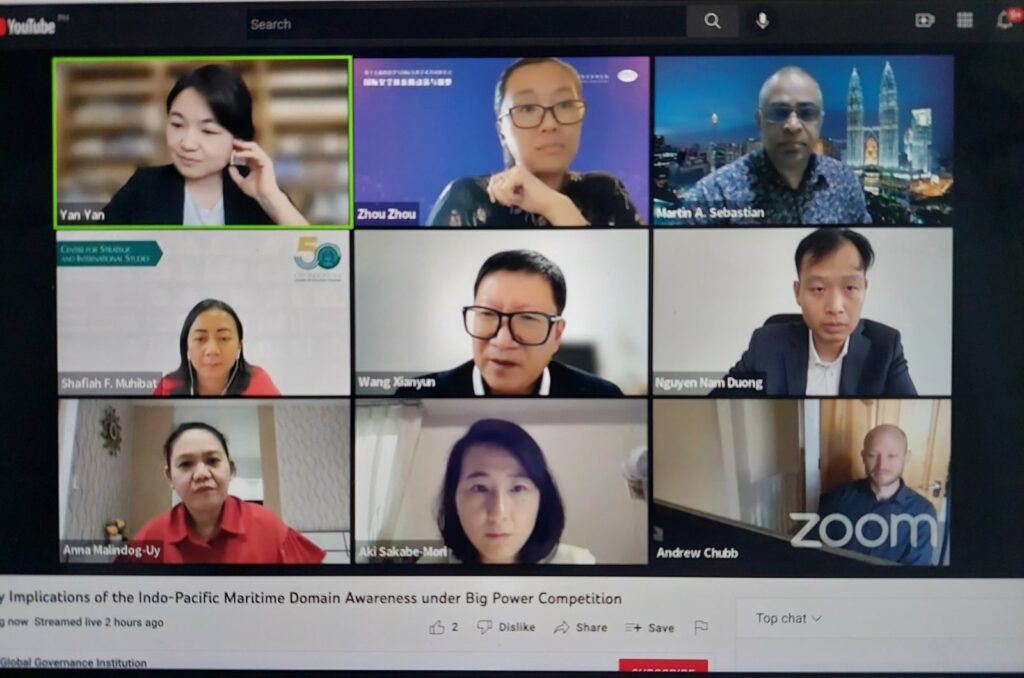
Conclusion
To conclude, the rivalry and competition of superpowers, particularly between China and the U.S., are one of the major geopolitical concerns of small countries like the Philippines. Though it is somewhat wishful thinking at the moment, how I wish that the US could find a compromise to co-exist peacefully and cooperatively with China.
With the raging Ukraine Crisis and the ever-present and still prevalent COVID-19 pandemic, the need for economies in the Asia Pacific region like the Philippines to bounce back from the devastation triggered by the pandemic and the Ukraine crisis is primordial. It should take precedence or should be the priority, and that would connote that countries in the Asia Pacific region like the Philippines do not need an Indo-Pacific Partnership for Maritime Domain Awareness (IPMDA) that targets or isolate China, which would further accelerate the growing rivalry, competition, and the cold war atmosphere between China and the US in the Asia Pacific/Indo-Pacific region and even beyond, which make the regional context and realities all the more volatile and precarious.
To note, a cold war between the two superpowers will only lead to the progression of conflicts in the world at a time when cooperation is indispensable and vital to regional and global survival, stability, and peace because of the continuous prevalence of the Covid-19 pandemic and the ramifications of the on-going Ukraine crisis.
Rather, countries in the Asia Pacific region must emphasize common interests, strike a middle ground amid conflicting interests, and seek greater value in win-win cooperation in maritime affairs, regional connectivity, pandemic response, economic and trade cooperation, mitigating climate change and the energy crisis affecting the countries in the region and the world at large.
Countries in the Asia Pacific region must do away with unilateralism and the creation of “blocs” or groupings with the sole purpose of singling out one country. Instead, they must work to promote peace, stability, and prosperity in Asia and the world in general.
Most importantly, countries in the Asia Pacific region must be cognizant of the fact that China is here to stay precisely because it is part and parcel of the Asia Pacific region by virtue of its geography. More than anything, China is a strong regional power in every sense. Thus, no one in the Asia Pacific region can and should exclude China. It is the giant elephant in the room, so to speak.
Thus, China’s participation in Asia Pacific affairs is essential. This is a fact that all countries, including the US, have to accept. This applies to all regional and international affairs, including the IPMDA.
Hence, in Quad’s attempt to promote Maritime Domain Awareness and reduce illegal, unreported, and unregulated (IUU) fishing in the Indo-Pacific region, it should involve China in the conversation precisely because China has a substantial maritime presence in the Asia Pacific region which makes it a key if not the most critical and vital player in combatting illegal, unregulated and unreported (IUU) fishing activities in the region.
More importantly, countries in the Asia Pacific region should forge and institutionalize multilateral and bilateral arrangements and agreements with China and other Asian countries on matters related to fishery management, environmental cooperation, joint oil and gas development, and exploration and joint maritime patrols, among others, which are important economic issues and maritime activities that will boost the mutual trust and confidence between and among Asian countries and that include China.
All these will, to a greater extent, serve as a “win-win” compromise that will benefit Asian countries in general and may trigger the resolution of disputes and differences among countries in the Asia Pacific region that have a dispute over land or maritime territories and boundaries.
All these, by far, are the most pragmatic and viable avenues to easing tensions, disputes, and differences among and between countries in the Asia Pacific region.
Indeed, building consensus may prove difficult but not impossible, while confrontation on issues surrounding the Asia Pacific region certainly is self-defeating.
Thus, the IPMDA should be taken with a grain of salt and second thought.
Ladies and gentlemen, friends and colleagues, thank you for your attention, and good afternoon.
WATCH: The 15th Annual Conference of the Academic Community on Political Science and International Relations will be held from July 5 to July 6, 2022, with the theme of “Turbulence and Adjustment of the International Security System.” The conference is organized by the Institute of International Relations of Tsinghua University. As one of the contributors, the Global Governance Institution (GGI) has organized a sub-forum entitled “Security Implications of the Indo-Pacific Maritime Domain Awareness (IPMDA) under Big Power Competition.” This will be held this afternoon, 05 July, 2:00- 4:00 p.m. (Beijing Time)
The chair of this meeting will be retired Sen. Col. Wang Xianyun, the VP of GGI and the Center for American Studies Director. Mr. Wang was a Chinese defense attaché to several countries before he retired from the military.
The said forum gathered a pool of serious experts with a diversified background to discuss the issue. They are either practitioners with official capacity or academic scholars in the field of maritime security and geopolitics.
1. Dr. ZHOU Zhou, Deputy Director of the Center for South-East Studies, GGI
2. Dr. Swaran Singh, Professor for Diplomacy and Disarmament at Centre for International Politics, Organization and Disarmament (CIPOD), School of International Studies, Jawaharlal Nehru University, India
3. Dr. Aki Sakabe-Mori, Assistant Professor of the Faculty of Humanities and Social Sciences, University of Tsukuba, Japan
4. Dr. Kyung-young CHUNG, Colonel (retired) of ROK Army, Professor at Hanyang University
5. Anna Malindog-Uy, Professor of Political Science, International Relations, Southeast Asia and China Studies
6. Captain Martin A. Sebastian RMN (Retd), Former Senior Fellow/Centre Head, Centre for Maritime Security and Diplomacy, Maritime Institute of Malaysia (MIMA), Malaysia
7. Dr. Shafiah F. Muhibat, Deputy Executive Director for Research, Centre for Strategic and International Studies (CSIS), Indonesia
8. Rohit Karki, Senior Project Officer, Asia-Pacific Unit, DCAF – Geneva Centre for Security Sector Governance, Switzerland
9. Andrew Chubb, British Academy Postdoctoral Fellow, Lancaster University, UK
10. Dr. Yan Yan, Director of the Research Center of Oceans Law and Policy in the National Institute for South China Sea Studies (NISCSS).

